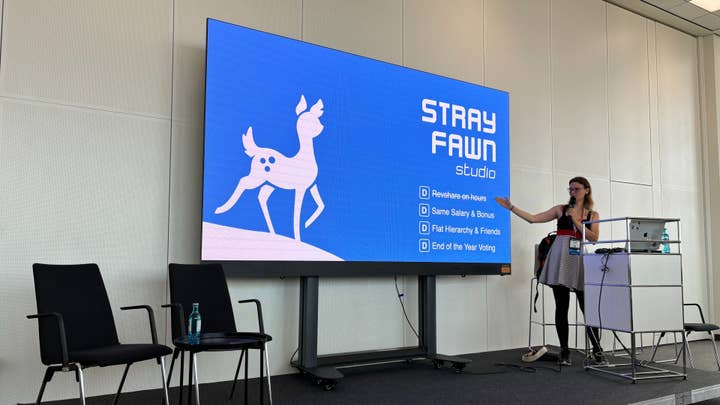How Stray Fawn Maintained Independence for Eight Years Without Investors or a Publisher
At the Devcom event, Stray Fawn Studio co-founder Philomena Schwab shared insights into the Swiss studio’s independent journey over the past eight years, highlighting the critical role of community engagement in their game development process.
Stray Fawn, based in Zurich, maintains its independence by choosing not to collaborate with publishers or rely on outside investors. When their inaugural game, Niche, a genetics survival game, gained traction through crowdfunding, they still refused publisher propositions. Previous experiences with a mobile game where partnering with a publisher didn’t yield positive results shaped this decision. Schwab mentioned, "I prefer to be accountable for my game’s performance rather than sharing that responsibility with others."

The studio maintained its stance against publishers even after The Wandering Village garnered attention. Schwab noted, "Around 50 publishers showed interest, some we seriously considered due to the project's risks. However, we opted against it to preserve all revenue and avoid external pressures affecting deadlines and quality."
This philosophy resonates with their principle of developer ownership without third-party influence. "Selling the studio wasn’t our goal. We wanted to create a space for enjoying game creation while making a living," Schwab explained.
Stray Fawn promotes equality within the team by ensuring equal pay for all employees. Any staff member working at the studio for three years earns bonuses equivalent to those of the founders, adjusted only for full-time or part-time status. Schwab commented, "Everyone's earnings are transparent, which boosts motivation as everyone sees their efforts reflected in their compensation."
"The next time a game flops, I want to be fully responsible for that game flopping"
Beyond organizational structure, Schwab highlighted the importance of community in their success. Although the debut of their first game began on a modest scale, it expanded significantly upon a complete launch, driven by the community's social media activity and attracting streamers. "Community-building was pivotal for our initial success, which isn’t typical for first-time games," she remarked.
Strong community support ensured a loyal audience for any future releases, irrespective of the genre. Although their five-game portfolio showcases diversity, their publishing strategy remains focused. Schwab explained, "We sign games akin to our latest game, The Wandering Village, enabling cross-promotion among city-builders."
Their entry into publishing, despite avoiding external publishers, was straightforward. "We aim to embody the kind of publishers we would have considered. Publishing isn’t our primary focus. Thus, if publishing ventures don’t pan out, there’s no pressure," Schwab stated. They assist developers but refrain from imposing creative constraints, prioritizing flexibility and artistic freedom.
GamesIndustry.biz is partnered with Devcom. The event planners covered travel and accommodation expenses for participants.